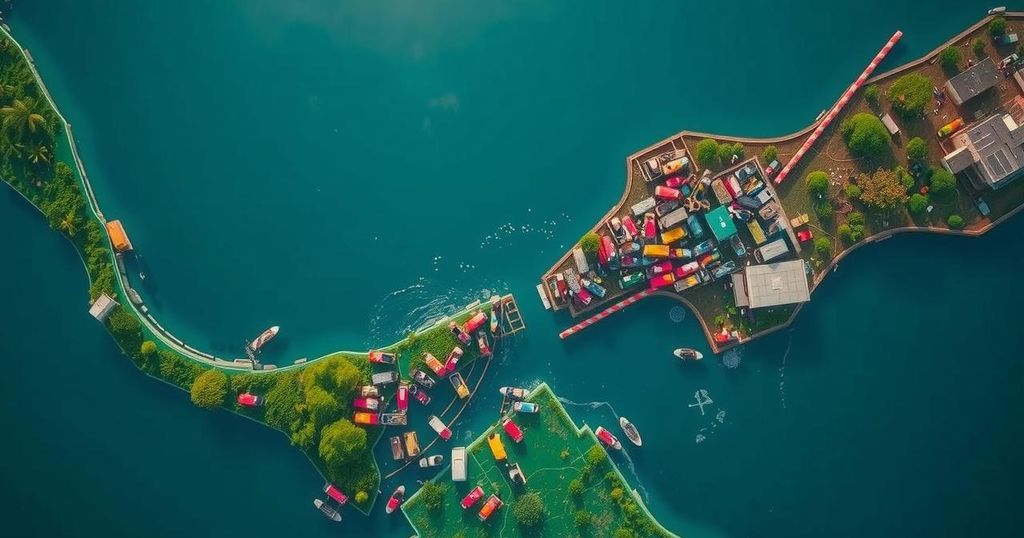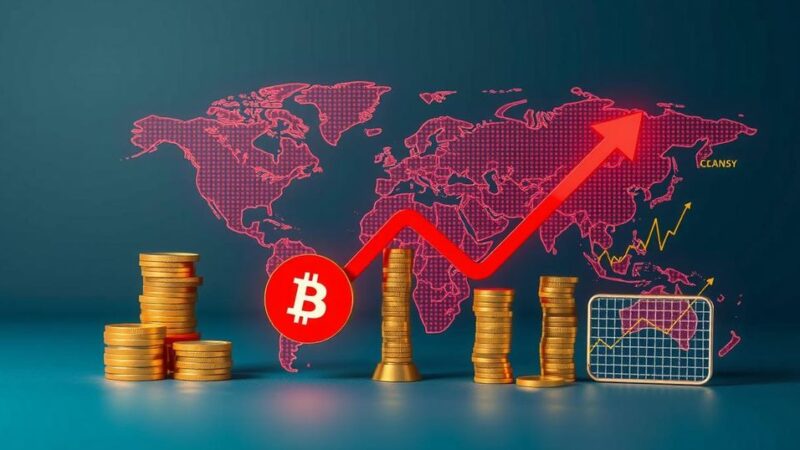Migration through the Darién Gap surged sharply in September, primarily due to Venezuelan migrants following the contested presidential elections in Venezuela. Despite a record number of crossings in 2023, humanitarian support for migrants has diminished, exacerbating the challenges faced by those traversing this dangerous route.
In September, migration through the Darién Gap—a treacherous jungle corridor between Colombia and Panama—saw a notable surge, predominantly driven by Venezuelan migrants following the contentious presidential elections in Venezuela. According to data from the Panamanian government, the overall migratory flow has increased, reflecting a more than 51% rise in the number of migrants compared to August, with Venezuelans composing over 80% of this influx. Amid these changes, the humanitarian capacity to assist these migrants remains under strain, as emphasized by reports from human rights organizations. Specifically, Refugees International noted that the crackdown that ensued in Venezuela after the elections on July 28, 2024, has accelerated migration patterns, leading a significant number of individuals to risk the dangerous passage through the Darién. Reports from the Panamanian Ministry of Security indicate that while the total of migrants who crossed the Darién in 2024 has decreased compared to last year, September alone saw 25,111 individuals making the journey. In light of the Venezuelan government’s suppression of dissent, many have sought refuge elsewhere. The Panamanian government, under President José Raúl Mulino, has pledged to combat this migration by enhancing border controls and collaborating with the United States to enforce repatriation protocols. However, these efforts have paradoxically failed to address the specific challenges faced by Venezuelan migrants, whose movement has been complicated by Panama’s diplomatic stance following the disputed electoral legitimacy in Venezuela. Additionally, the humanitarian situation for migrants in Panama has deteriorated, particularly after the suspension of aid from Doctors Without Borders (MSF) due to unresolved agreements with Panamanian authorities. MSF had played a crucial role in providing medical care and humanitarian assistance to migrants traversing this hazardous region. However, after the recent resumption of their activities, they reported assistance to over 72,700 migrants between January 2023 and February 2024.
The Darién Gap remains one of the world’s most perilous migration routes, with numerous individuals attempting to traverse its challenging terrain to reach North America. The intersection of political unrest in Venezuela and increasing migration trends has significantly impacted this region. Venezuelans constitute a substantial portion of the migrants using this route, driven by socio-political factors, including recent elections and governmental crackdowns. Panama’s evolving immigration policies and humanitarian responses critically influence the experience of migrants as they navigate this journey through the Darién.
In summary, the increase in migration through the Darién Gap, particularly among Venezuelans, reflects the broader implications of political instability in Venezuela and the limitations of humanitarian support available in Panama. While government measures may have temporarily slowed the flow of migrants, the underlying issues driving this migration—coupled with reduced assistance—pose significant challenges for both the migrants and the host nation.
Original Source: apnews.com







